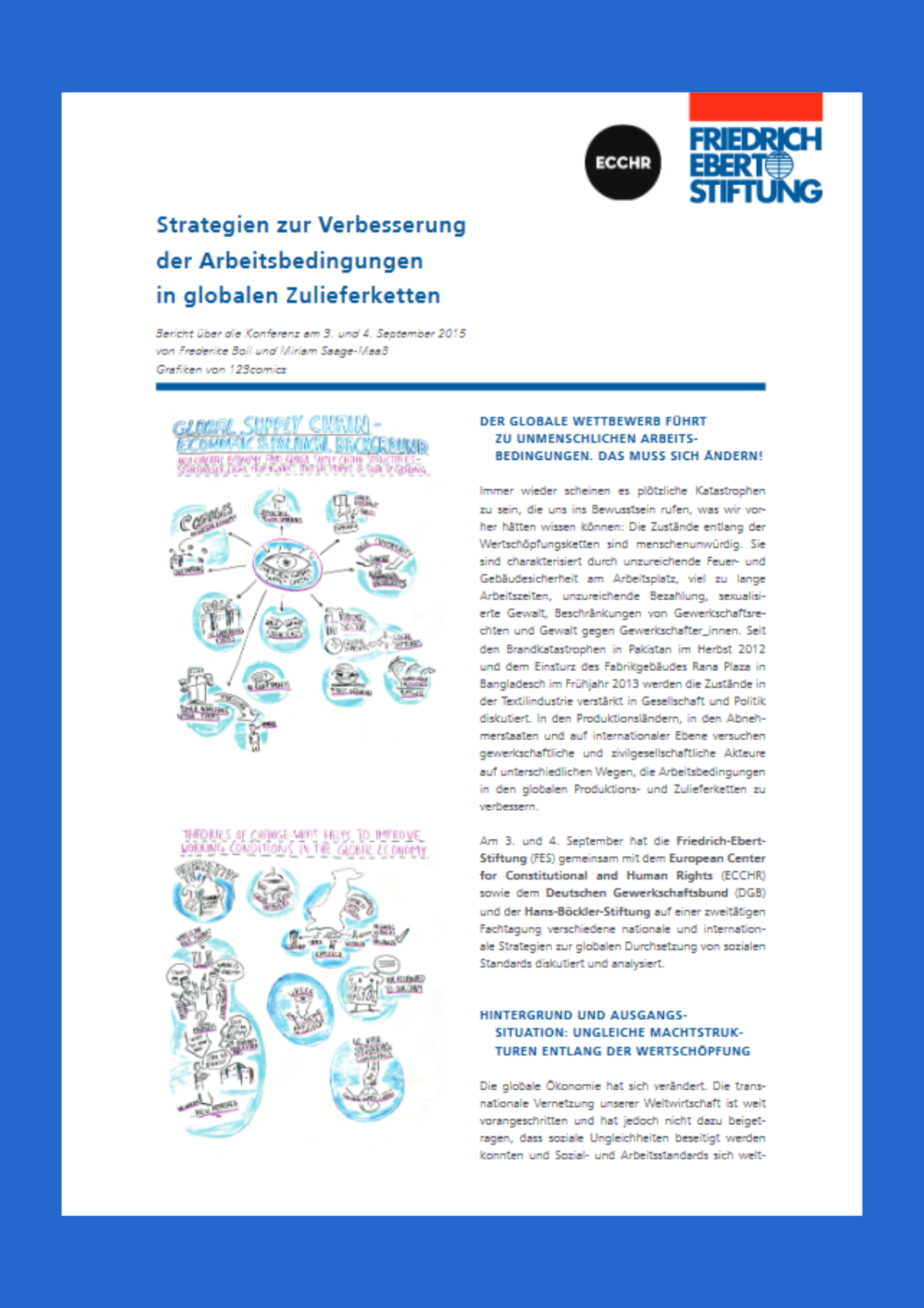Miriam Saage-Maaß,
Frederike Boll
Report
2015
Grave fire and construction hazards in the workplace, extreme working hours, inadequate pay, gender based violence and restrictions on trade union rights as well as violence against trade unionists are all part of the everyday reality of global supply chains. These conditions have been the subject of increased political and societal debate since the fire disasters in Pakistan and Bangladesh in autumn 2012 and the Rana Plaza catastrophe in Bangladesh in spring 2013. Trade unionists and civil society actors are taking action in a variety of forms in production countries, in consumer states and on the international level in an effort to improve working conditions in global supply chains.
Over the course of the two-day symposium "Strategies to Improve Working Conditions in Global Supply Chains" ECCHR together with the DGB, the Hans-Böckler-Stiftung and the Friedrich-Ebert-Stiftung as well as international partners and guests analyzed and reflected on these various international and national strategies. The focus was on the question of how existing efforts can be improved and better linked with one another. We also examined the role law and legal interventions can play in this context. The report documents the main questions and findings of the symposium.


